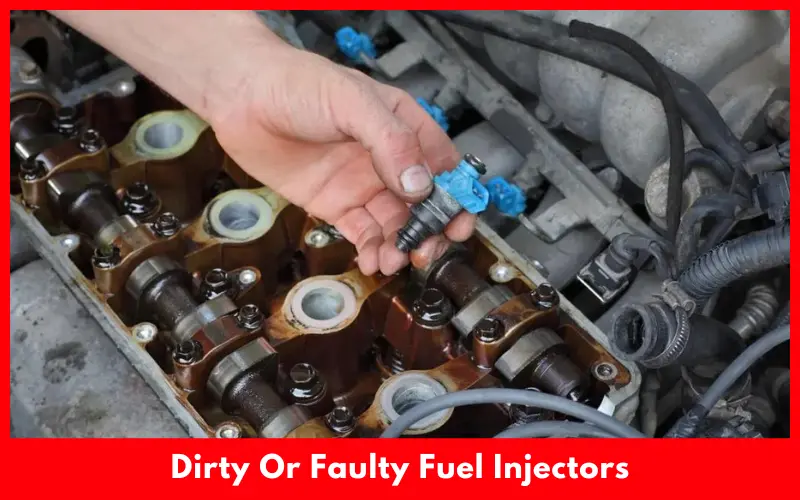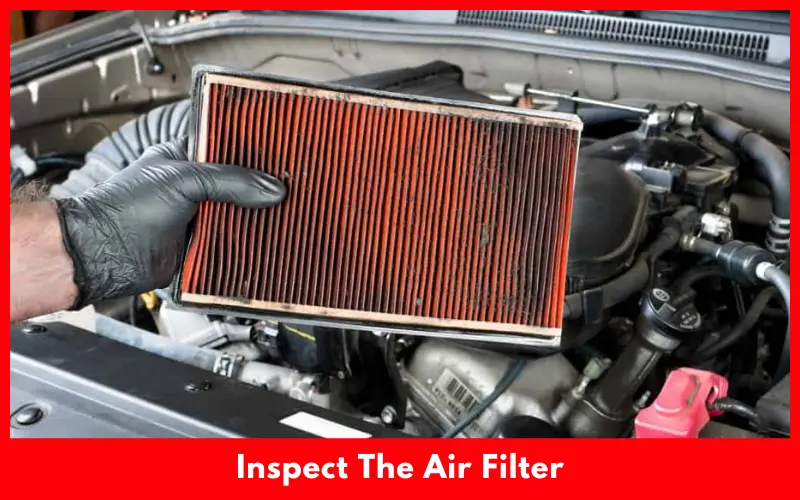Your car jerking as you fill up the speed may be enough to make your temper-flare and leave you anxious. No matter whether you’re meandering around your town or you are engaged in highway merging, a smooth ride is essential for both comfort and thrash-proof attributes.
Besides causing discomfort, car jerks when accelerating at low speeds may also be an indicator deeper into the problem concerning the performance of the car. In this article, we will take a closer look at some of the reasons for rough acceleration. Then, we shall provide a couple of tips on how you can maneuver harder when driving a car again.
Article Summary
Reasons For Car Jerks When Accelerating At Low Speeds
To understand the crazy movements of a vehicle or the uneven acceleration of a car, there are lots of issues which can prepare for this problem. Here are some common reasons:
Dirty Or Faulty Fuel Injectors
Fuel injectors are extra important for the proper supply (delivery) of the necessary amount of fuel to the engine. Eventually, these filters may get dirty, clogged or loaded with carbon buildup under the weather influence, which impairs their work.

Further, the cases where the fuel injectors wont spray fuel are equal, and misfiring the engine works unevenly, resulting in lumpy jittery acceleration. Conducting the maintenance work like fuel injector cleaning or replacement as necessary can therefore solve the problem of the engine knocking sounds.
Spark Plug Issues
Spark plugs make the air fuel mixture to ignite in the combustion chamber. Faulty spark plugs with creased electrodes or filthy plugs may prevent the engine from producing smooth power and create hesitation or jerking during acceleration. Checking and replacing the spark plugs at the factory geared intervals can contribute to the efficiency of acceleration and smoother functioning of the engine.
Dirty Air Filter
Air filter restricts dust, dirt, and debris from getting inside the engine. A worn and “clogged” air filter tends to affect the flow of air restricted which prevents the engine from inhaling and “breathing” as it should.
This will consequently lead to poorer engine performance leaving it struggling to accelerate without maintaining the original smoothness. Doing the routine of checking and replacing the air filter keeps engine performance in an excellent condition and also the fuel effectiveness one.
Transmission Problems
Transmission problems, including low fluid level, worn-out clutch plates and the faulty solenoids, may cause the vehicle to jerk when it is at low speed. Proper gearbox maintenance that includes checking and refilling the transmission fluids is very critical in avoiding transmission-related issues and also good in ensuring smooth engagement and acceleration.
Throttle Position Sensor (TPS) Malfunction
The ECT calculates the required air-fuel ratio using input signals from the throttle position sensor and adjusts fuel delivery based on the ECU signals accordingly. By not working properly TPS can mess with the communicating of both, disrupting the stable throttle responses and jerking accelerations. Installing the TPS or fixing the wire issues may be the first solution to the problem and it may help to recover normal acceleration.
Faulty Mass Airflow Sensor (MAF)
The MAF sensor or Mass Airflow Sensor measures the airflow into the engine and equates fuel delivery to the airflow as well. The engine operates on ideal fuel and air ratios to give the smooth acceleration pumping but a damaged MAF sensor ruins this balance causing jerking acceleration.
Vacuum Leaks
Fast leaks in the vacuum system make an air-fuel mixture non-homogeneous, thus becoming a reason for slow engine performance and poor acceleration.
Ignition System Problems
A defect in the ignition coils, ignition wires, or distributor can give poor performance of the spark, and this can cause the engine to jerk while the engine is at a high-speed.
How To Fix Car Jerks When Accelerating At Low Speed?
The elimination of jerky acceleration at low speeds is a cured-all that must be done following the discovery of the main cause. Here’s a step-by-step guide to help you resolve the issue:
Check The Basics
Start off with making sure that your vehicle attends to the familiar refill and replacement calls. Make sure the engine oil level, transmission fluid level, and a coolant level are all checked. The engine and transmission performance can be affected by old or dirty fluids or lack of hydraulic fluids which in turn causes transmission jamming leading to changing gear along with slow down.
Inspect The Air Filter
The engine may lose power and jerk during the process of acceleration due to the air filter that is preventing clean air from reaching the engine, causing a lousy rate of combustion.

Air your air filter and check it to be clean, or free from dirt or clogging. If you notice the pollution level in the air has increased, you may consider changing the filter for a new one.
Inspect The Spark Plugs
Worn-out or fouled spark plugs cause misfire, thereby ending up with jerky acceleration. Create your Own: Make your Own: Make your own sentence, write a sentence you create about the topic given or a given sentence.
By removing the spark plugs and checking them for wear and tear, fouling, and carbon accumulation, you will be able to tell if they are healthy and functioning well or not. Remove any defective or limited spark plugs being used and replace them with new ones.
Clean The Throttle Body
Polluted throttle body eventually could influence the airflow to the engine resulting in an unsmooth power increase. Unbuckle the intake hose and utilize throttle body cleaner to clean the throttle body and throttle plate. Cleaning It is important to observe the manufacturer’s cleanup directions and caution notices when cleaning the throttle body.
Check For Vacuum Leaks
Vacuum leaks have the ability of messing up the air-fuel mixture operation, which in turn leads to decreased engine performance and failed acceleration. If you are unable to start the engine or it is running rough, suspect your intake system. In addition, check for vacuum leaks using vacuum gauge or smoke machine. Fix any leaks by renewing old or damaged hoses or gaskets.
Inspect The Fuel System
The poor fuel injection system with clogged or broken injectors will disturb the delivery of fuel that is needed by the engine and thus, will cause the vehicle to respond to the gas pedal roughly. Utilize a fuel injector cleaner additive by adding a fuel injector cleaner to your fuel, or see a specialist for a proper clean-up of your fuel injectors to remove and buildup off any deposits. Likewise, mount replacement injectors in case they are broken.
Scan For Error Codes
Plug in an OBD-II scanner and see if any fault codes have been stored in the computer. error codes can help in revealing the cause that lies beneath the struggle that the car is having with maintaining a smooth acceleration. If you found the codes please use them as the manual/instruction for further diagnostic and repair.
Consider Transmission Service
When the jerky acceleration continues and you are very sure that you are facing transmission-related issues you are advised to seek such type joint inspection and service from the certified mechanic. If the transmission oil level is low, or worn solid or faulty clutch switch, this may cause going faster to be uneven, and this issue should be rectified on time.
Also Read: Car Jerking When Stopped
FAQs About Jerky Acceleration in Cars
Why is My Car Jerking During Acceleration?
The glitches in the jerk acceleration are frequently related to the different issues, such as the dirty fuel injectors, spark plug faults, transmission problems, failure to provide an accurate signal about the position of the throttle, and the air filters that are dirty or clogged. These problems can hinder engine performance, as a result, irregular power delivery and rough acceleration will occur.
How Can I Prevent Jerky Acceleration in My Car?
One of the main reasons one could avoid jerky accelerating is due to regular maintenance. Replace spark plugs, air filters, and fuel filters on time to prevent unnecessary waste of fuel and emission of pollutants.
Preventing future transmission malfunctions begins with regular transmission fluid servicing and promptly solving any problems the warning lights indicate. As the execution of the prescribed manufacturing maintenance schedule can be such a mechanism, the smooth performance of the acceleration will be guaranteed.
Can Driving Habits Contribute To Jerky Acceleration?
Indeed, such driving habits as bold braking or sudden acceleration do tend to make the stop-acceleration pattern more noticeable. It is also helpful that we apply the best ways to apply smooth acceleration and brake gently, which both ensure that there will be excellent transmission and engine performance, and subsequently create a comfortable driving experience.
Is Jerky Acceleration A Sign Of A Serious Problem in My Car?
The rapid starting can occasionally be triggered by insignificant reasons such as clogged components or worn out parts. However, it is quite possible that it has been caused by a more serious problem; say, the engine or transmission. Anything, particularly, reigning in abrupt stop/start while driving deserves alert actions and immediate repairs for the sake of safety.
When Should I Seek Professional Help For Jerky Acceleration?
If you have already given simple procedures like changing the spark plugs and cleaning the air filter and your and auto still have up and down movements on increasing speed, now it is the time to call a professional mechanic.
They might land their own jobs and carry out diagnostic tests to spot the problem and fix it properly. Disregarding the repeated problem of periodically jamming could consequently mean higher repair costs either in the long run or at the worst scenario, and as a result, the problem is best addressed now.
Conclusion
The jaunty jerk from your vehicle could be one of the results from a vast array of mechanical conditions including some easy fixes and more complicated issues. Through the treatment of the fundamental issue of driving as a learning and experiencing process, it can be achieved.
Routine car care, such as tune-ups and inspections, is an effective preventive step for addressing acceleration troubles. When the car problem is unclear, you shouldn’t do it yourself. It is recommended to hire the mechanic, who is a professional qualified and ready with expert advice and assistance.

